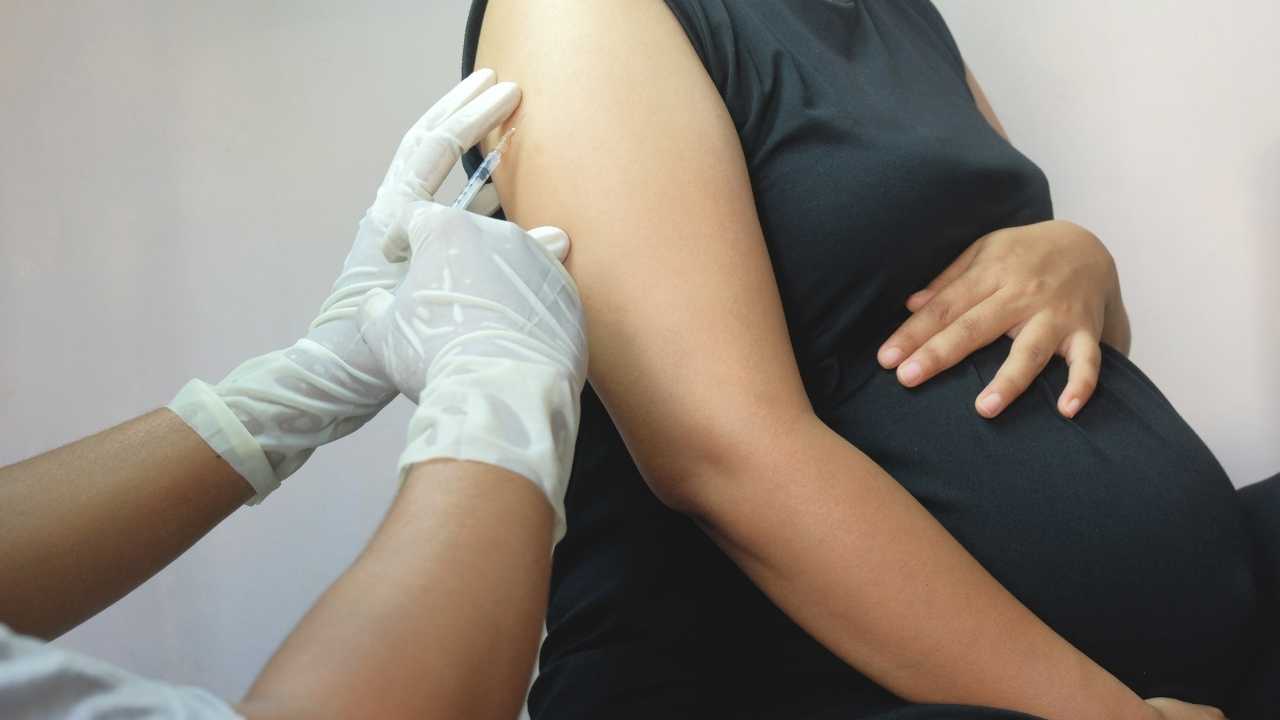Overview
Vaccines given to you before and during pregnancy play an essential role in safeguarding your health and your baby health. Baby’s initial line of defense against certain dangerous illnesses is his mother’s immunity.
After vaccination antibodies are made in great quantities by pregnant mothers, that are passed on to their babies.
Pregnant women who aren’t up to date on their vaccinations could harm themselves or their unborn children. If you’re expecting a child, talk to your doctor about which immunizations you might need and whether you should get them now or wait until your baby is born.
Here’s all you need to know about this topic

What is immunization/vaccination?
Vaccination is a secure, and efficient technique to protect yourself from deadly diseases before they infect you. It promotes your immune response by harnessing your body’s innate capabilities to build infection resistance.
Vaccines boost people’s immune systems, allowing them to fend off dangerous infectious diseases. Vaccines also help society by keeping communicable diseases from spreading.
Many women may be unaware that they are not immunized and are thus vulnerable to infections that could harm them or their unborn children. Pregnant women should see their doctors to determine which immunizations they may require and whether they should receive them during pregnancy or after the birth of their child.
Different types of immunization are available
During a pre-pregnancy visit, you should request a blood test to see if you’re immune to certain infections. You should get vaccinated before getting pregnant. Simply postpone conception for one month because these vaccinations contain live viruses that can harm your unborn child.
Vaccines before pregnancy
Vaccine for Measles, Mumps, and Rubella (MMR)
Measles, a highly contagious disease caused by a virus, has recently erupted in the United States. Fever, cough, and runny nose are the first symptoms, followed by a spotty red rash a few days later. Mumps is a widespread viral infection that causes salivary gland enlargement. If you get one of them while pregnant, your chances of having a miscarriage increase (measles may also increase the chance of premature labor)
Rubella causes flu-like symptoms. It can also be dangerous to a pregnant woman.
Varicella Vaccine (Chicken Pox)
Chickenpox is a highly contagious disease that causes fever and an itchy rash. Around 2% of kids born to mothers who get chickenpox during the first five months of pregnancy have birth abnormalities, such as deformed or paralyzed limbs. Furthermore, a woman who gets chickenpox around the time of delivery can spread the infection to her infant, which can be fatal.
20+ Years Of Experience as Fertility Specialists
20 Years Of Experience as a Fertility Specialists
National Fertility Awards 2023
Call Us
+919990044555
Book An Appointment
Follow Us On
Vaccines during pregnancy
Vaccine for Influenza (Flu Shot)
The Agency for Disease Control and Prevention (CDC) urges that all pregnant women get this flu beforehand. This shot is best taken between November and March. The flu vaccine is safe for both you and your child because it is made up of dead viruses. However, you should avoid FluMist, a live virus nasal spray vaccine.
Tetanus, Diphtheria, and Pertussis Vaccine (Tdap)
Tdap can be administered at any time during pregnancy, although it is most effective between the weeks of 27 and 36. Because the vaccination contains toxoids, it is safe to get while pregnant. October or November is the optimum time to receive this shot.
Tetanus is a condition that causes painful muscle spasms and convulsions in the central nervous system. Diphtheria is a respiratory infection that can cause breathing problems, paralysis, coma, and death. A booster shot is necessary every ten years, even though the fact that it is currently uncommon now.
Hepatitis A
Doctors or healthcare professionals may offer the hepatitis A vaccine to pregnant women who have a history of chronic liver illness.
Hepatitis B
A baby born to a mother who has hepatitis B is at the highest risk of contracting the virus during birth. Make sure to consult your doctor.
Vaccines for travel
Pregnant women contemplating overseas travel should consult with their doctor or healthcare provider at least 4 to 6 weeks before their departure to discuss any specific precautions or vaccines that may be required.
FURTHER READING
Importance of Immunization after pregnancy
In one of our related blogs, we have shared informative content about Are Covid-19 Vaccines Safe for Pregnant Women? Some ladies may be advised by clinicians to get most vaccines soon after giving birth. Postpartum immunization will help protect moms from getting sick, and, they will give some antibodies to the infant through breastmilk. If moms did not receive specific immunizations before or during pregnancy, vaccination after pregnancy is very critical.
The baby will also begin receiving immunizations to prevent him or her from major childhood ailments.
Conclusion
Pregnant women who aren’t up to date on their vaccinations risk contracting infections that could harm them or their unborn children. If you’re expecting a child, talk to your doctor about which immunizations you might need and whether you should get them now or wait until your baby is born.
Your doctor will assess the dangers of vaccination against the benefits it can give, depending on the case.
If you have concerns about Vaccines during Pregnancy or would like more information, call us today to schedule a consultation with our team.
The Gunjan IVF World provides comprehensive, full-service medical care for all reproductive health needs. In Delhi and the Nearby area, We have a full staff of trained, approachable Infertility and gynecologist who are specialists in diagnosing and treating many conditions affecting the female reproductive system
Share this with
Related Blogs
Leg cramps in pregnancy : How to get rid of it?
Comprehensive Fertility Treatments | Gynaecology Procedures | Menopause Management | Pregnancy Care | Maternity & Birthing Call +919990044555Read this small article by IVF experts of the best IVF center in Ghaziabad – Gunjan IVF World on how to get rid of leg...
Is it safe to travel in pregnancy?
Comprehensive Fertility Treatments | Gynaecology Procedures | Menopause Management | Pregnancy Care | Maternity & Birthing Call +91-9990044555IVF experts of the best IVF clinic in Delhi – Gunjan IVF World share an article on the best time to travel during...
Follow Us On
About Author





